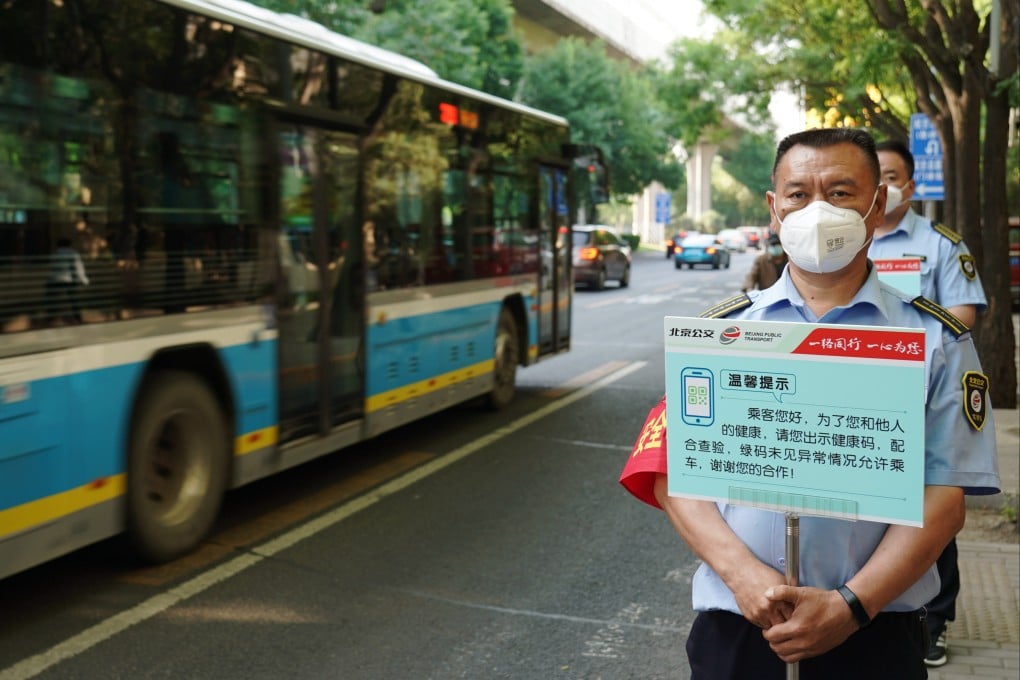Coronavirus: Beijing, fighting Omicron, adds identity info to transport passes to speed up checks of Covid-19 status
- The city plans to make the change by the end of the month, purportedly to alleviate bottlenecks caused by staff checking commuters’ health-code apps
- The move essentially extends real-name registration, previously only required for intercity travel, to transport within the city

Beijing Municipal Administration and Communications Card Co (BMAC), the city government-owned developer of the transport pass, has urged passengers to “upgrade” their cards by adding identity numbers and phone numbers as a first step to integrate the transport passes with Covid-19 status information.
The inclusion of the identifying information should save time as citizens comply with a rule, implemented Tuesday, that mandates proof of a negative nucleic-acid test within the last seven days to use public transport.
Beijing’s effort follows similar moves in the Guangdong-province cities of Guangzhou, Shenzhen and Zhuhai to integrate health information with the public-transport infrastructure in order to control the movements of unvaccinated citizens or residents from high-risk areas.

“After the users complete the upgrade by adding the relevant information, they no longer need to switch between different [apps], reducing the waiting time in line and improving the efficiency of travel,” BMAC said in a statement. Senior citizens and children who do not have phones can be exempted from the check, BMAC added.